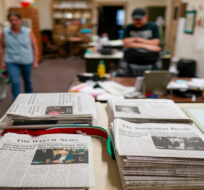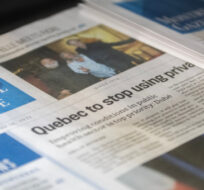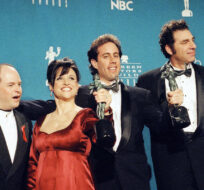
Journalist Tim Schwab on investigating Bill Gates and his philanthropic foundation
Tim Schwab, a D.C.-based investigative journalist, discusses his provocative new book, The Bill Gates Problem: Reckoning with the Myth of the Good Billionaire.

Tim Schwab, a D.C.-based investigative journalist, discusses his provocative new book, The Bill Gates Problem: Reckoning with the Myth of the Good Billionaire.

What is needed is for the government to define what it expects the CBC to deliver in a way that is both clear and doable. The United Kingdom does this through the Royal Charter, which is, in effect, a contract between the BBC and the government. It specifies what the BBC will do over the next ten years, along with a commitment for funding. It is a mandate with teeth.

A review of the CBC should test the basic idea of a public broadcaster itself by returning to the initial case for government intervention in news and entertainment and judging whether it’s still applicable. The most important question shouldn’t be “What is the CBC?” but rather “Do we still need the CBC?”

Steve Hayes, editor and CEO of The Dispatch, discusses the state of the news media industry, the evolution of conservative journalism, and how The Dispatch fits within these trends.

To start the new year, Hub readers discussed many topics over the past week, including a secret report documented by a British Ambassador and what it reveals about Canada, the country’s fiscal outlook, the Canadian legacy media and the Online News Act, Saskatchewan’s cancelling of the carbon tax, and the state of the country’s stagnant economy and finances.

The federal government’s mission to prop up the dying (or dead) legacy media is plainly misguided. By doubling the media bailout, they continue to make the innovative new media companies less competitive relative to the legacy media incumbents.

This episode of Hub Dialogues features Amy Mitchell, the founding executive director of the Center for News, Technology & Innovation, on how information and technology are transforming journalism, the role of public policy in supporting the sector, and how we can ultimately cultivate a pluralistic and diverse media ecosystem.

This episode of Hub Dialogues features Sean Speer in conversation with Chuck Klosterman, a best-selling author and journalist, about his must-read book, The Nineties. The episode was originally published on June 22nd, 2023.

This episode of Hub Dialogues features Sean Speer in conversation with child advocate Gregg Behr and award-winning writer Ryan Rydzewski about their poignant book, When You Wonder, You’re Learning: Mister Rogers’ Enduring Lessons for Raising Creative, Curious, Caring Kids. The episode was originally published on April 27th, 2023.

This past week saw Hub readers discuss zero-emissions vehicle regulations, the impact of the Online News Act, a green agenda for conservatives, and whether spending on gifts remains a meaningful tradition or reflects inefficient spending, among other topics.

FREE weekly email newsletter. Cancel anytime.